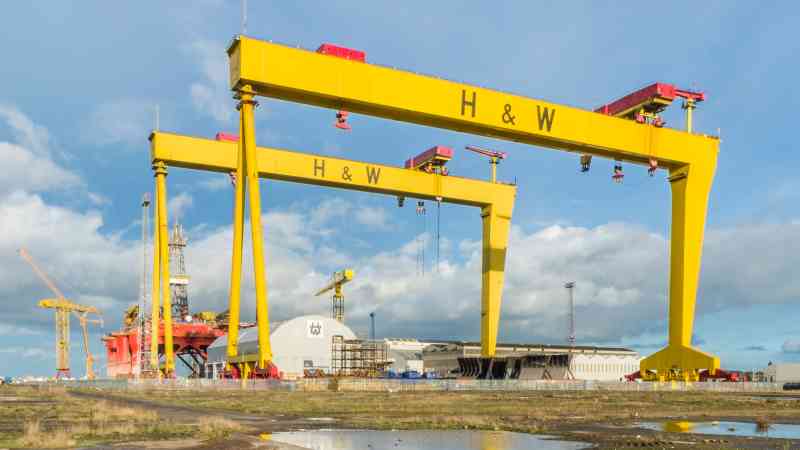Harland & Wolff, the Belfast-based shipbuilder that built the Titanic, has launched a forensic investigation into £25 million of “misapplied” spending as it prepares to call in administrators.
The accountancy firm PwC and legal experts from Simmons & Simmons have been hired to conduct an internal review over the spending of customer deposits.
The review is also looking into smaller transactions that are alleged to have had “little or no corporate benefit”.
The future of Harland & Wolff, which employs more than 1,000 people, was plunged into doubt this summer when protracted talks over a £200 million taxpayer-backed loan collapsed. Aim-quoted shares have been suspended from trading and chief executive John Wood was forced to step down.
Harland & Wolff’s finance chief Arun Raman resigned last week with immediate effect. He is thought to have been put on a leave of absence in August.
Raman is believed to have clashed with interim chairman Russell Downs over being restricted access to company records. He also is understood to have opposed plans to put the company’s parent into administration next week.
Teneo has been lined up to oversee the bankruptcy of Harland & Wolff in a move that will allow the company to shed millions of pounds of legacy liabilities with the assets then sold to a new owner.
Spanish shipmaker Navantia is the frontrunner to take control of Harland & Wolff in an auction that is overseen by the investment bank Rothschild, according to sources familiar with the situation.
Placing the Harland & Wolff parent into bankruptcy threatens to void a £1.6 billion contract the company has with the Ministry of Defence to build three Fleet Solid Support (FSS) ships for the Royal Navy.
Frantic talks are ongoing between the Harland & Wolff board and the MoD to convince officials of the merits of sticking with a Harland & Wolff and not putting the contract back out to tender.
Downs said: “Despite the recent challenges, the four yards have a strong capability, under new ownership and with the continuing support of their customers, to deliver UK-based ship building and leading UK-based renewables employing more than 1,300 committed personnel.
“It’s critical that the business comes through its financial troubles to secure an enduring legacy worthy of its name and its past for the benefit of the UK as a whole and its communities in particular.”
The forensic investigation is the latest twist in resurrecting the fortunes of one of the UK’s best-known shipyards.
Raman said: “There has been no formal request for information to me in relation to any misapplication.
“Further, all clients have been fully aware of the financial position of the company since November 2022, and have had access to management, the board, UKEF and DBT to understand how the refinancing process has been coming along for the last two years.”
He continued: “Clients and the company’s lenders have also had one-to-one conversations with the government to get an independent steer of the process.
“In relation to certain items that have little or no corporate benefit, again, these items have not been formally detailed, so it is difficult to determine what this pertains to.”
Wood, meanwhile, said that Harland & Wolff shareholders were planning to launch an injunction to stop the board from placing the parent company into administration.
He said: “The crying shame in all this is that we delivered a business as per the plan with sales that will exceed the forecast this financial year, and had brought shipbuilding back to Belfast and [Devon shipyard] Appledore.
“Hopefully a solution is found soon so the work of rebuilding the historic shipyard can start again and protect the 1,500 jobs and 250 apprenticeships we created. I have been working with several interested parties looking at options.”
